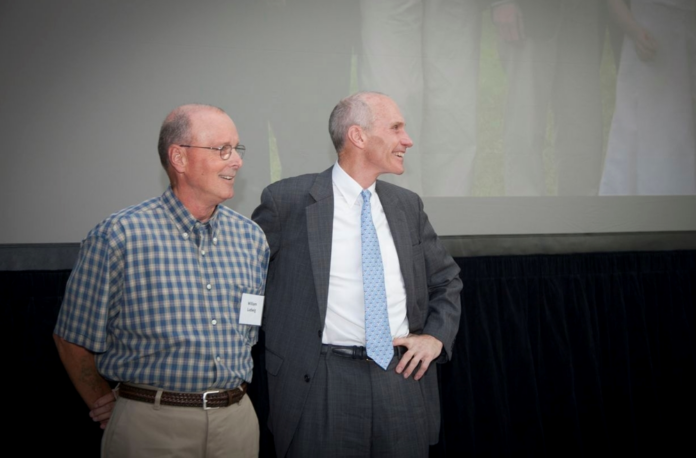
According to a new study, two leukemia patients achieved a decade-long cancer remission thanks to CAR T cell therapy.
In 2010, Bill Ludwig and Doug Olson became the first participants in the University of Pennsylvania’s clinical trial for experimental cancer therapy. Both men suffered from chronic lymphocytic leukemia (CLL) and had already exhausted all standard treatment options prior to the trial. With their cancers mutating to an ‘un-treatable’ stage, Penn researchers decided to treat their end-stage leukemia using Chimeric Antigen Receptor (CAR) T cells. Both patients managed to achieve complete cancer remission within a year of treatment. Now, a recent study has provided further analysis of the two patients, a decade after they first received CAR T cell therapy.
CAR T cell therapy involves the use of a patient’s own immune cells; the cells are collected and genetically modified in a lab. These re-engineered T cells then develop special structures called chimeric antigen receptors on their surface. Once introduced into the blood, these T cells can recognize and attack cancer cells in the body. Thus, using the patient’s own immune system to target cancers.
According to the study published in the journal Nature, doctors did not detect any cancer cells n the patients ten years after the infusion. Moreover, the circulating CAR T cells demonstrated cancer-fighting ability when exposed to cultured cancer cells. Thus, providing evidence of the longest recorded persistence of CAR T cell therapy against CLL.
It could be that every last cancer cell was gone within three weeks of when we treated [the patient]. Or it could be they keep coming up like wack-a-moles and get killed because these CAR T cells are on patrol.
Dr. Carl June, senior author
Not Without Side Effects
Since its discovery, the experimental therapy has helped treat a wide variety of cancers, including lymphomas. Scientists are currently working on adapting the treatment for solid cancers. Despite the success, CAR T cells don’t come without side effects.
Penn has begun testing next-generation T cells in more blood cancers, including lymphomas, and against the challenging solid tumor cancers.
Dr. Carl June, senior author
According to the study author, Dr. David Porter, tumor-lysis syndrome is a major concern with this type of immunotherapy. Tumor-lysis syndrome develops from dead cancer cells emptying their contents and resulting in electrolyte imbalances and renal damage. Other side effects include cytokine-release syndrome and neurologic toxicity. However, over the years, researchers have developed multiple interventions to counter these side effects.
Reference:
Melenhorst, J.J., Chen, G.M., Wang, M. et al. Decade-long leukaemia remissions with persistence of CD4+ CAR T cells. Nature (2022). https://doi.org/10.1038/s41586-021-04390-6



